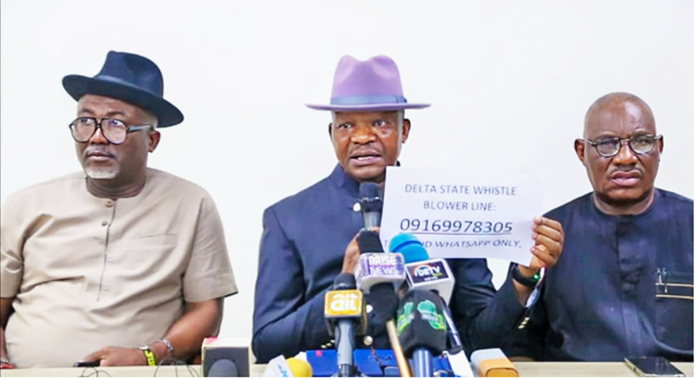THERE is no doubt that Delta State has become a haven of project given the massive construction going on across the state. This is indeed, a clear departure from the past wheresome projects were awarded and subsequently abandoned due to inadequate oversight on the part of relevant authorities of the state government. Beyond the sheer distress such abandoned initiatives impose on citizens, they constitute a glaring embarrassment to the government and a relentless drain on the government’s already lean resources—resources that could have been channelled into other pressing areas of development.
A close examination of this pervasive issue reveals a disturbing pattern: in many instances in the past, contractors received payments from the government but, emboldened by weak monitoring mechanisms, exploited this oversight gap to leave projects incomplete— sometimes without even breaking ground. This unchecked impunity has endured for too long, with these rogue contractors continuously evading consequences.
Despite establishing multiple agencies dedicated to project monitoring, rogue contractors have found ways to circumvent accountability, often in collusion with corrupt officials who are meant to oversee their work. Such connivance undermines good governance, erodes public trust, and leaves the citizenry bearing the brunt of unfulfilled promises, blaming the government for lapses it did not directly emanate from it.
Recognizing the magnitude of this challenge and its potential to taint his administration’s commitment to the MORE Agenda, Governor Sheriff Oborevwori has taken a proactive stance by personally inspecting projects across the state. His direct involvement underscores a serious commitment to quality control and eradicating corrupt practices.
However, the governor cannot be omnipresent, nor can he singularly monitor every project site across Delta State. This realization led to the launch of the Whistleblower Hotline on Project Monitoring, a bold initiative unveiled by the Commissioner for Works (Rural Roads) and Public Information, Mr. Charles Aniagwu.
We commend the state government for this laudable initiative and urge Deltans to leverage the platform as a tool for ensuring the diligent execution of public projects. The whistleblower mechanism has, in various contexts, proven to be an effective instrument in the fight against corruption and the promotion of accountability. With the public empowered to report anomalies, unscrupulous contractors will be deterred, knowing that their actions are under intense scrutiny and that they cannot compromise an entire populace.
Equally commendable is the government’s assurance of protection for whistleblowers, a necessary step in fostering confidence in the system. However, as citizens engage with this platform, they must exercise responsibility, avoiding frivolous allegations or deliberate misinformation. The legal framework governing whistleblowing frowns upon false claims, and abusing the initiative would only undermine its effectiveness.
Beyond its immediate function, this initiative signals the administration’s broader commitment to transparency and a concerted effort to dismantle the entrenched culture of impunity that has long plagued governance in Nigeria. A glance at some notorious cases on a national scale—such as the ill-fated Federal Government Grass-cutting Contract—illustrates the urgency of robust monitoring mechanisms at every level of governance.
We hope that this whistleblower hotline will catalyze a transformative shift in project execution, curbing the menace of abandoned contracts and instilling a sense of duty among contractors. We further recommend this model to the federal government and other subnational administrations as an effective blueprint for tackling project abandonment or mismanagement across the country.
Nevertheless, the success of this initiative hinges not just on public participation but on the sincerity of those entrusted with its implementation. The government must ensure that the whistleblower hotline remains an impartial tool of governance, devoid of ethnic, political, or economic biases. Those responsible for overseeing reports must resist the temptation to manipulate the system for personal gain by conspiring with dishonest contractors to suppress legitimate claims.
Ultimately, the onus is on contractors to deliver quality jobs, by ensuring that the whistleblower hotline is seldom used—not because of neglect, but because projects are executed with integrity and efficiency. Governor Oborevwori has made it abundantly clear that defaulters will face severe consequences.
With a collective commitment to vigilance, accountability, and ethical conduct, Delta State can set a precedent for responsible governance, ensuring that public projects serve their true purpose—improving the lives of its people.


